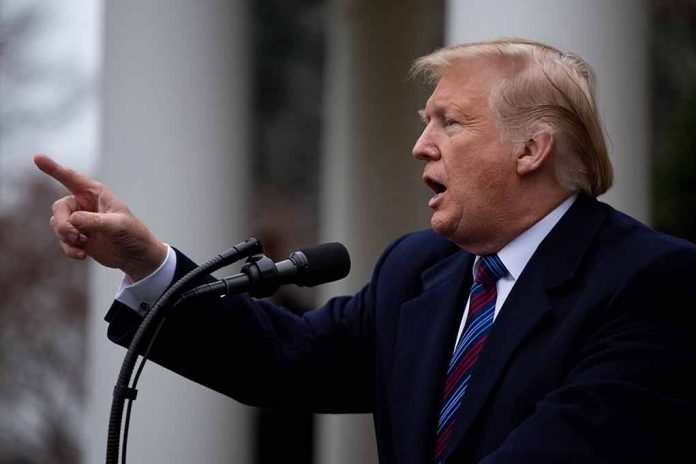
President Donald Trump’s executive order reshapes workplace diversity by emphasizing a merit-based approach, sparking debate over its implications for fairness and excellence while creating significant changes for federal contractors.
Key Takeaways
- Trump’s executive order revokes diversity, equity, and inclusion (DEI) programs for federal contractors.
- Federal hiring practices are refocused on merit, without considering race, gender, or religion.
- The Order terminates the 1965 Executive Order 11246 that promoted affirmative action.
- Businesses, especially federal contractors, must adapt to the new merit-based policy.
- Civil rights advocates criticize the move as a step back for workplace equality.
Trump’s Order Eliminates Affirmative Action
President Donald Trump signed a series of executive orders starting his term with a decisive move to dismantle existing diversity and affirmative action policies. By revoking the 1965 Executive Order 11246, originally signed by President Lyndon B. Johnson, Trump removed the obligations on federal contractors to maintain diversity strategies prioritizing race, gender, or identity. These changes, announced as part of Trump’s order “Ending Illegal Discrimination and Restoring Merit-Based Opportunity,” mark a significant shift towards merit alone as the standard in federal employment and contracting.
The new directive mandates organizations working with the government to adhere strictly to federal anti-discrimination laws while prioritizing merit over active DEI programs. Contractors have been given 90 days to eliminate affirmative action initiatives not aligned with the order, effective April 21, 2025.
Supporters argue that this shift ensures fairness by promoting equal treatment without favoritism, while critics warn of potential setbacks to diversity efforts. This development has cast a shadow of uncertainty over businesses that remain in the process of diversity audits or agreements with the federal government. Legal experts are advising these companies to consult with legal counsel to adequately understand the implications of these sweeping changes.
Impacts on Government and Major Corporations
The reach of this policy extends beyond federal contractors. It includes a reevaluation of federal employment practices, union contracts, and training policies. The Office of Management and Budget, the Attorney General, and the Office of Personnel Management have been tasked to terminate DEI programs within the federal framework. Federal DEI employees are to be placed on administrative leave, with DEI-focused web resources scheduled for removal. Prominent corporations such as McDonald’s, Walmart, and Ford have already begun scaling back their DEI efforts in response to this systemic shift.
The move is not without its detractors. Civil rights advocates and Democratic lawmakers, including the Congressional Black Caucus and civil rights attorney Ben Crump, have voiced concerns that the order could disproportionately roll back decades of advancements in workplace equality for minority groups. Critics argue these measures potentially curtail economic opportunities for traditionally disadvantaged communities.
There are still laws that protect from discrimination in the workplace.
He repealed an affirmative action executive order that only applied to federal contractors. Next! https://t.co/VkHDxkwjok
— Jarrod Rodriguez 🇺🇸🏳️🌈 (@JarrodRodrigue1) January 22, 2025
The Debate Over Workplace Diversity Continues
Trump’s executive order catalyzes a broader conversation about the balance between equality and meritocracy in the workplace. Conservative voices, including Elon Musk, now leading the Department of Government Efficiency, have criticized DEI efforts as discriminatory.
“DEI is just another word for racism. Shame on anyone who uses it,” Musk stated, stirring further debate on social media and among corporate leaders. The ongoing discussion questions the future trajectory of workplace diversity policies and the role of government in shaping these frameworks.
Amid this contentious backdrop, the business world waits to see if upcoming political or judicial developments will further impact diversity policies. While advocates for DEI continue to push back against the new rules, arguing for the necessity of inclusion measures that ensure equitable opportunities for all employees, others maintain that true fairness lies in advancing policies that prioritize individual merit, skill, and performance above all else. This perspective asserts that a merit-based system can foster excellence, reward hard work, and eliminate divisive practices perceived as favoring one group over another, paving the way for a workforce driven by talent and achievement.


